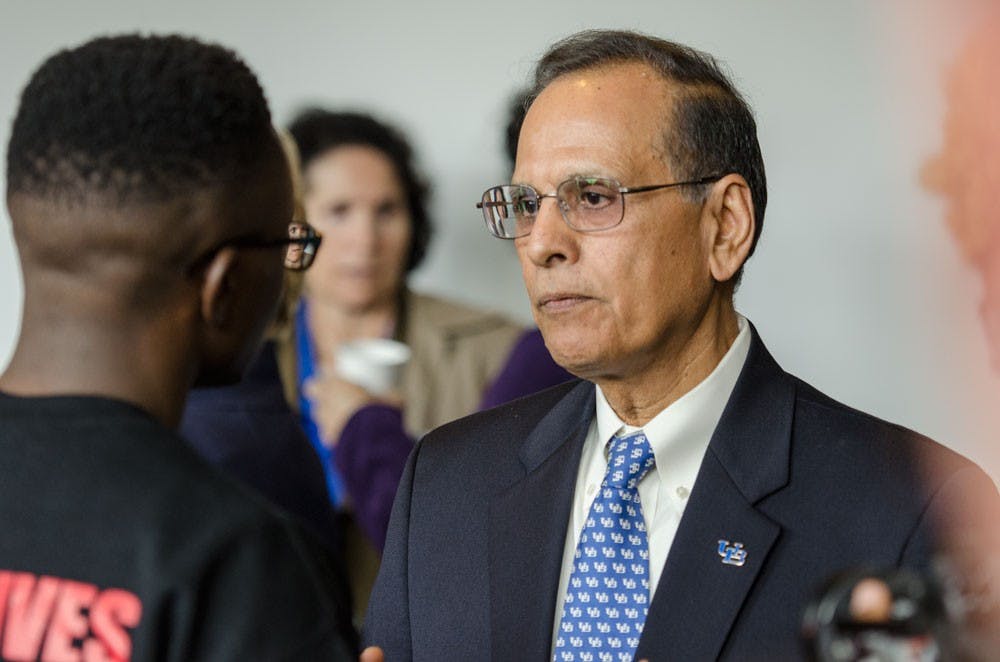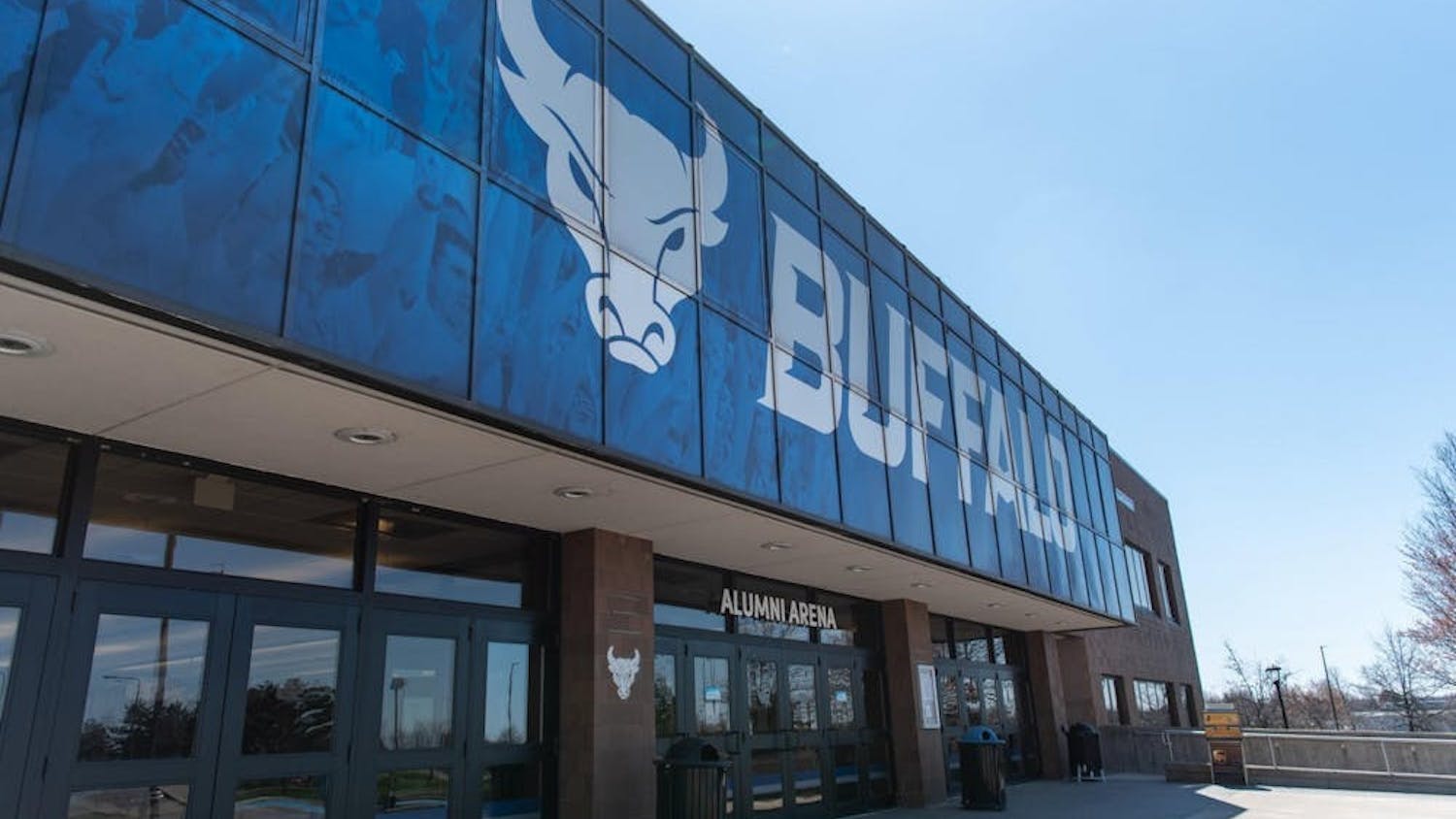Students seek inspiration and leadership from their president when their university faces complex problems and controversy. At UB, it’s becoming increasingly clear that our president is failing us.
The Black Student Union’s (BSU) protest during and after President Satish Tripathi’s annual address Friday was yet another example of the disconnect and divide between Tripathi and the student body.
Although BSU students held banners and staged a walk out, their president – our president – failed to even take note of them or acknowledge them in real time. He simply went on talking and praising the university’s achievements as if the living, breathing, angry students in front of him were invisible. He calmly finished his state of the university speech, woodenly mentioning that the College of Arts and Sciences is dealing with the “difficult conversation” and is “determining the boundaries” between freedom of speech and cultural taboos.
Only afterward, when asked about the protest, did he say he supported students’ right to protest.
What sort of message should we students take from that?
What sort of leadership is that?
Does our president see us at all?
BSU and other students are disappointed with the university’s response to graduate fine art student Ashley Powell’s art project, in which she hung “White Only” and “Black Only” signs around campus last month. But they and we are also stunned by Tripathi’s impersonal handling of the situation.
When the controversy first erupted, Tripathi did not attend the BSU forum held to discuss the signs nor listen to the anger the signs stirred in students. A week after the incident, after major newspapers across the country, including The New York Times, wrote about the controversy – and after this newspaper voiced concern that he had not responded adequately to students – he issued a formal letter which acknowledged the problem and outlined the difficulty the project presented to a university trying to balance sensitivity to minorities with freedom of speech. He did not take a firm stand or even present a timeline when the university would create a policy.
“These questions won’t be answered overnight. It will take time, effort, and careful consideration on each of our parts to address them. But doing so is of critical importance for all of us, and will have lasting value,” Tripathi wrote in his open letter to The Spectrum on Sept. 24.
In the letter, he told students he could not attend the BSU forum because he was traveling to Albany on SUNY business. Could he not have sent a representative? Where was the provost? A vice provost? When President Obama cannot attend an important meeting, he sends Vice President Biden or another member of his cabinet.
Tripathi’s absence – and the absence of any of his representatives – says to students that they and their concerns don’t matter.
Tripathi did meet with student leaders, including BSU, on Sept. 21, however, he cannot meet with BSU again until early November because of an extended trip, BSU Vice President Deidree Golbourne told The Spectrum Friday.
Is he hoping students will forget? If so, he’s wrong.
BSU wants the university to take a stance.
They don’t necessarily want retribution or for Powell to be punished – although they do want some recognition of their hurt and anger. More than anything, they want to feel that their university hears their concerns.
They want a president who shows he cares and understands their needs. A president who encourages them to face problems as a community through open dialogue.
Dialogue is hard to have with an empty chair.
In 2013, the last time we surveyed students about UB leadership, 82 percent said Tripathi has minimal presence on campus. Some students said they had never seen him. A few didn’t know his name.
We addressed this directly with Tripathi last spring. He said it comes down to “perceptions.”
“Perceptions are important but they’re just perceptions,” Tripathi told The Spectrum. “I’m on the campus, multiple events every week, where there are some students there. I’m in the Commons, in the Student Union building having lunch … But I’m meeting with student groups all the time actually, and I think it’s important for me to talk to students to find out what their concerns are.”
Last week, students showed Tripathi their concerns via a walkout.
He can improve this by being a vigorous advocate for students and giving attention to the issues they care about.
Tripathi may very well be taking this issue very seriously. He may very well be upset his students are angry and uncomfortable. He and the administration may feel they are doing enough.
But students clearly don’t agree.
The editorial board can be contacted at eic@ubspectrum.com





